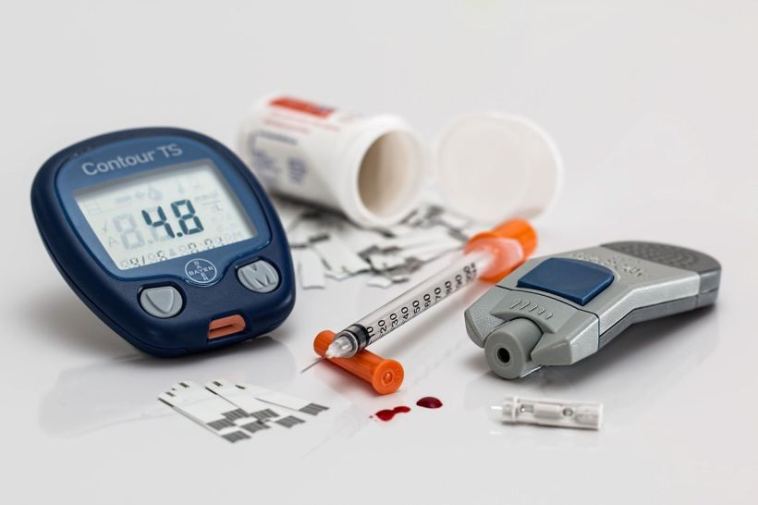- Like
- SHARE
- Digg
- Del
- Tumblr
- VKontakte
- Flattr
- Buffer
- Love This
- Save
- Odnoklassniki
- Meneame
- Blogger
- Amazon
- Yahoo Mail
- Gmail
- AOL
- Newsvine
- HackerNews
- Evernote
- MySpace
- Mail.ru
- Viadeo
- Line
- Comments
- Yummly
- SMS
- Viber
- Telegram
- JOIN
- Skype
- Facebook Messenger
- Kakao
- LiveJournal
- Yammer
- Edgar
- Fintel
- Mix
- Instapaper
- Copy Link
Introduction
Being diagnosed with diabetes has no doubt caused you to make many adjustments from your previous lifestyle.
You have had to become familiar with considering your glucose levels with every meal you eat or skip. Maybe you have to leave for home early from functions to self-administer your glucose injections.
But when it comes to college and exams, there is much you can do to lessen the impact of diabetes on your career, starting with exam preparation and writing.
Types of Diabetes and Making Supportive Lifestyle Changes
Your requirements and the adaptations you need to make will depend on which type of diabetes you have, Type 1, Type 1.5, or Type 2, while there is also the pre-diabetic stage.
These lifestyle changes would have started long before the exams when you started at university. If you are living on campus, you would have had to adjust to cooking arrangements, check food labels, and limit carbs.
Calorie counting would have started upon diagnosis. Or you may be away from your parents for the first time and have had to learn to inject yourself without help.
Prediabetes means that your blood sugar level is higher than normal. While it is still too low to be diagnosed as type 2 diabetes, the chances of developing the latter are greatly increased compared to someone with a normal blood sugar level.
There is a danger of being susceptible to the conditions associated with long-term type 2 diabetes without getting the disease full-blown. The organs and systems most at risk are the heart, kidneys, and blood vessels.
On the positive side, you will not automatically progress to type 2 diabetes. However, it is best to avoid the possibility by making the lifestyle changes that can avert it and applies to children and adults with a prediabetic condition.
This includes eating a healthy diet, exercising, and watching your weight. See the next section for the changes a type 2 sufferer must make and use that as a guide.
Understanding the Different Types of Diabetes and Diet
Type 1 diabetes is an autoimmune condition. This means that the body attacks its own cells. A glycated hemoglobin (A1C) test is used for diagnosis and monitoring in case you need to adjust your insulin and/or diet.
The A1C is usually conducted every two months, and it is important that you schedule this test regularly. Before exams, you may want to check it more frequently to optimize your lifestyle choices. You will need to count fats, carbs, and proteins with Type 1 diabetes, eat healthily and manage your weight.
Type 1.5 diabetes is a childhood disease that occurs in adults and is not hereditary. It is associated with obesity and an unhealthy lifestyle, so weight management is the priority. As Type 1.5 diabetes destroys insulin, the sufferer will eventually have to rely entirely on injections. A high fiber, low glycemic diet must be followed.
With Type 2 diabetes, there is no specific diet, but it is recommended that you maintain a healthy weight, reduce grain and starchy vegetable intake, increase fiber, and reduce calories.
Start as You Mean to Go On
Even before you get to exam time, you can prepare best for your career by choosing a qualification that will enrich your life.
For example, nursing is a field that provides purpose and requires dedication. Additionally, there is a global shortage of nurses which makes your degree or diploma a real asset anywhere in the world. Before excluding it as an option, consider an ABSN program from Baylor University Online. Nursing is one of the top ten careers that provide constant interest, job stability, and a decent salary, and this is exactly what you should be looking for.
On the other hand, some of the signs of being miserable in a job are depression, boredom, dreading going to work, your health being affected, a decline in productivity, lack of progression, and feeling as though your skills are being underutilized. So, start by choosing a career for life.
The Key to Coping with Exams as a Diabetic
The number one tip for coping with exams as a diabetic is maintaining your blood sugar levels properly. This means checking your levels before each study session and exam and getting them back on track.
Otherwise, you will lack the concentration to study or write. Make sure to keep snacks on hand that form part of your diet. It may sound obvious, but you have to study if you want to pass your exams. Set up your study schedule to include time out. Regular breaks are essential. This is something you will want to take up with your examination center.
The Law Is on Your Side
Fortunately, there is legal help to enable students with diabetes to function during their studies and when sitting for the exams. These are called test accommodations.
By taking advantage of this benefit, you can ensure that you enter the exam room knowing that you will not have to give your condition a second thought, that everything you need to manage it during the exam is on hand. Some options include a separate testing room, extended time to complete each paper, and breaks when you need them.
This allowance is covered by legislation and ensures your equality. While you will still have to prove your need for this accommodation, your doctor can provide you with a medical certificate detailing your condition and what special considerations are required during the exams. You have probably already informed your institution of your condition when you enrolled, so there would be a record of it. This link provides you with all the approved medicine and medical devices, mobility devices, and other authorized items that can be taken into the examination room.
The Takeaway
Managing diabetes is a lifelong obligation that extends well beyond exams. It is vital that you choose a career that you want to pursue for the rest of your life.
While some people change careers, it is usually to satisfy the need for a job that they can be passionate about. If you discover this early, you will save yourself years of depression and possible negative effects on your health.
Know the facts about your type of diabetes and the diet you should follow to maximize your wellbeing. Make the necessary lifestyle changes. Prepare a study schedule that takes your condition into account and do the studying.
Also, be sure to inform your institution and examination center of your condition and apply for test accommodations. Finally, remember that maintaining your blood sugar levels is the secret to coping and enjoying life.


